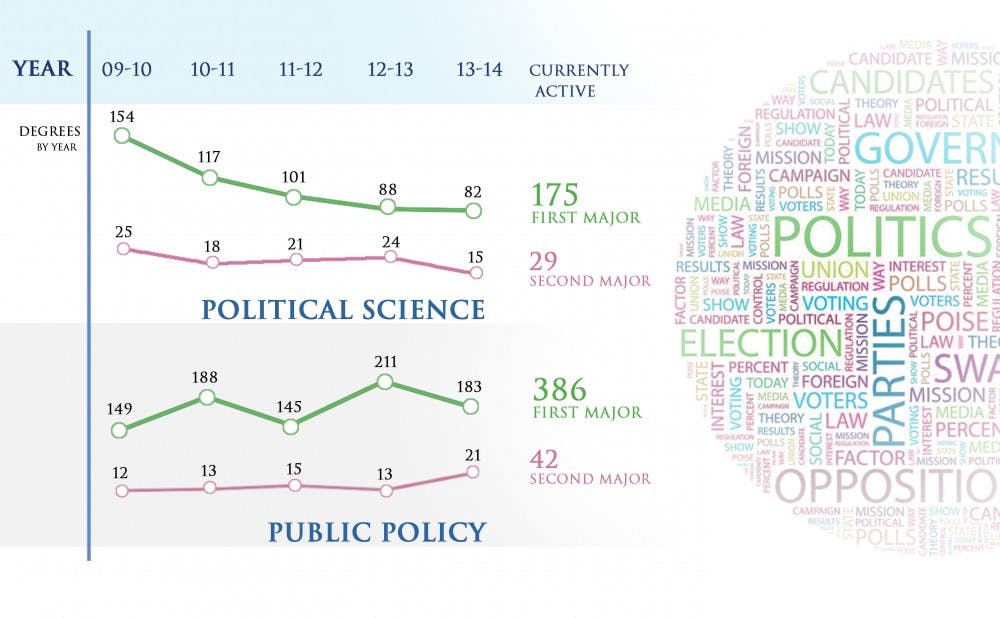Although the political science department has suffered a decline in student enrollment in recent years, faculty emphasize its continuing relevance as both an academic discipline and a path to the job market.
Last Thursday, Peter Feaver, professor of political science and public policy, spoke about ways to get a job in politics after graduation at the new "Pizza and Politics" luncheon series. Feaver talked about a growing concern that students are choosing majors perceived as more pre-professional, such as public policy, over more traditional fields of study, attributing this to the economic recession and parental pressure. While the political science department's enrollment numbers have dropped, enrollment in the public policy major has increased—leading some to speculate that the trends are correlated.
“Of course people who graduated with political science degrees have had jobs, and indeed, some have been phenomenally successful," Feaver said. "Part of it is clarifying for students that you can get a job from [political science]."
Between the Class of 2010 and the Class of 2014, there were 73 fewer students with political science as their primary major—a 49 percent drop. Meanwhile, the number of students with public policy as their primary major increased by 36 percent over the same period.
Michael Gillespie, professor of political science, attributed the decline in political science majors to a number of factors, including a drop in the number of students who go on to attend law school and a confusion among students about how to proceed through the political science major.
“Students are always somewhat mystified by our lack of an intro course,” he said, noting that he would be teaching the first Introduction to Political Science class in Spring 2016.
Ken Rogerson, director of undergraduate studies for the public policy major, acknowledged that the pre-professional aspects of public policy may be attractive to students.
“There is some truth to the fact that our combination of a liberal arts education with the practical implication of that education through a required internship is appealing to some students,” he said.
Rogerson noted, however, that it is difficult to parse the exact reason for the public policy major's increase in enrollment because students enter the field for a variety of reasons. He cited the new global health major, which requires a second major, as one potential source of the increase.
Although some say that the Sanford School is attractive due to its resources, he also said that the program has been stretched thin due to its recent increase in enrollments.
Senior Diego Quezada, president of the Public Policy Majors Union, noted that public policy majors have a wide variety of career goals.
“People say everyone in public policy wants to go into consulting or that everyone in public policy wants to go into politics," Quezada said. "The truth is that public policy has both types of people and many others. A large part of the reason people like public policy, I think, is that it offers a bit of everything.”
Junior Nicolas Pollack, president of the Political Science Students Association, noted that a similar breadth of interests exists within the political science department as well.
“Students trying to choose between the two should ask themselves whether they prefer more specialized policy analysis or more wiggle room under the [political science] umbrella,” he said.
Although Feaver’s talk centered on how to find a job post-graduation, he also emphasized the importance of developing broader skills over picking a specific combination of majors.
Rogerson also downplayed the importance of making a “correct” major choice.
“I never tell a student that they have to choose. It’s very possible to do both things,” he said. “If you love politics, you can find that in a beautiful way in the department of political science and in the department of public policy. The classes you take may be a little different, but there is quite a lot overlap."
Get The Chronicle straight to your inbox
Signup for our weekly newsletter. Cancel at any time.
Adam Beyer is a senior public policy major and is The Chronicle's Digital Strategy Team director.

